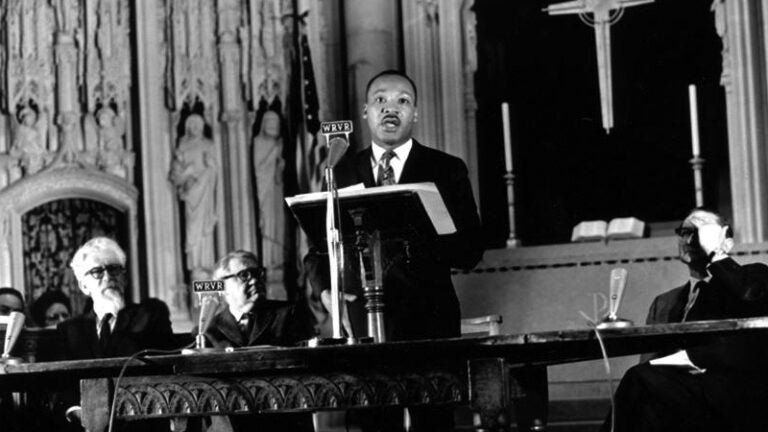
Pulitzer Prize-winning professor extols the wisdom of a lesser known MLK speech
While civil rights leader Martin Luther King Jr.’s inspirational and prophetic “I Have a Dream” speech is perhaps his best known, his oratorical catalog includes hundreds — if not thousands — more. Seldom mentioned is his “Beyond Vietnam” speech of 1967 in which he sharply criticized the United States’ role in the war in Southeast Asia.
In an essay in Time magazine, University Professor Viet Thanh Nguyen points to “Beyond Vietnam” as particularly relevant today.
Nguyen, a Vietnam War refugee who fled the conflict with his parents and came to the U.S. as a child, is now Aerol Arnold Chair of English and professor of English, American studies and ethnicity, and comparative literature at USC Dornsife College of Letters, Arts and Sciences.
Nguyen’s Pulitzer Prize-winning novel, The Sympathizer (Grove Atlantic, 2015), and award-winning nonfiction sequel, Nothing Ever Dies: Vietnam and the Memory of War (Harvard University Press, 2016), examine the Vietnam War from new perspectives not often used.
He spoke further about America’s relationship with the war in a 2016 USC Dornsife Magazine interview, and he explores identity, love and family through the eyes of those who belong to more than one country in his short-story collection The Refugees (Grove Atlantic, 2017).
In his Time essay, Nguyen draws from his extensive life experience and scholarship to connect today’s world with the circumstances of King’s day, calling upon Americans to heed King’s speech and the warnings within — and look for the common threads that connect us rather than the differences that divide.
Read Nguyen’s essay in the Jan. 27, 2019, issue of Time >>